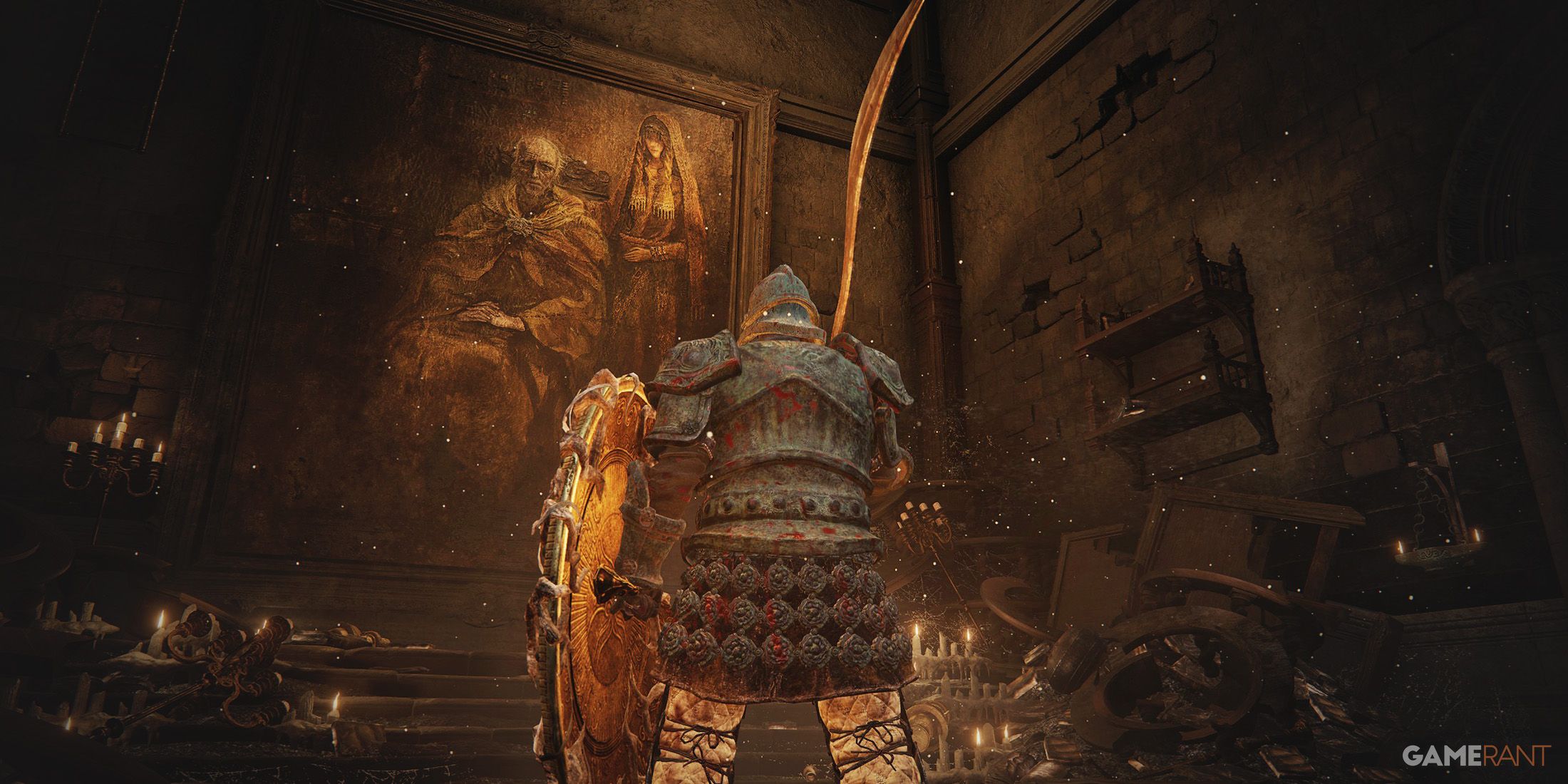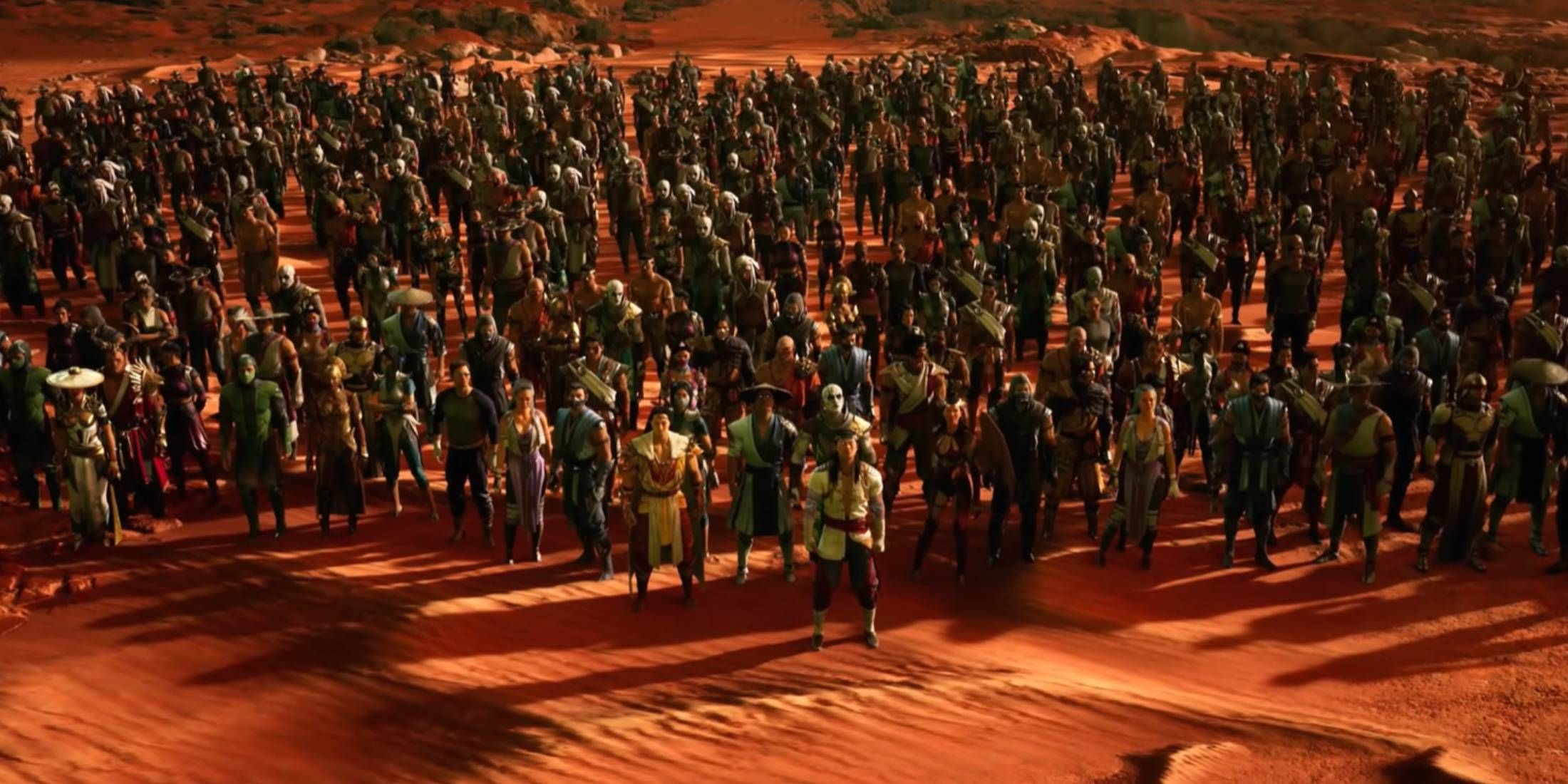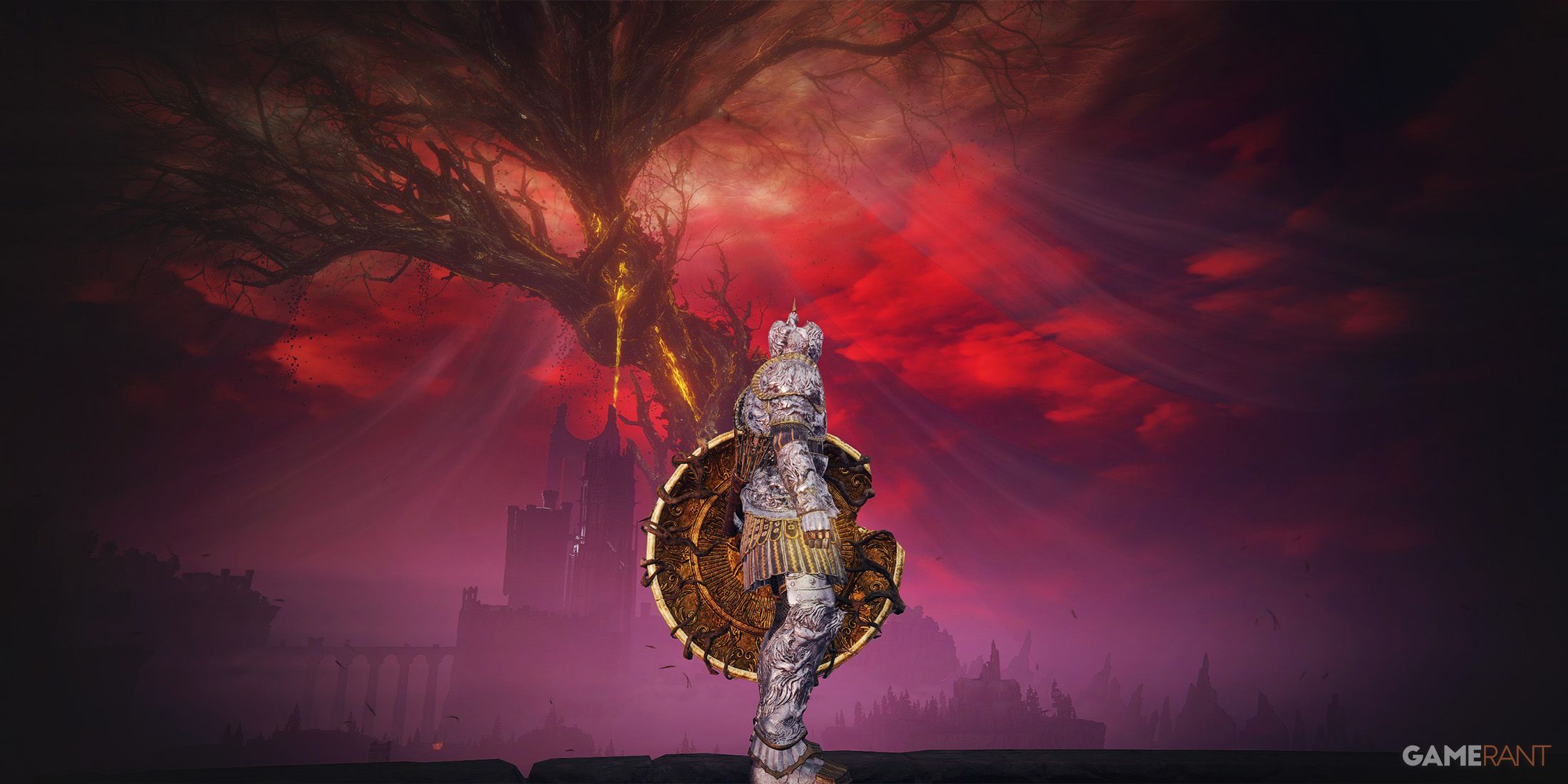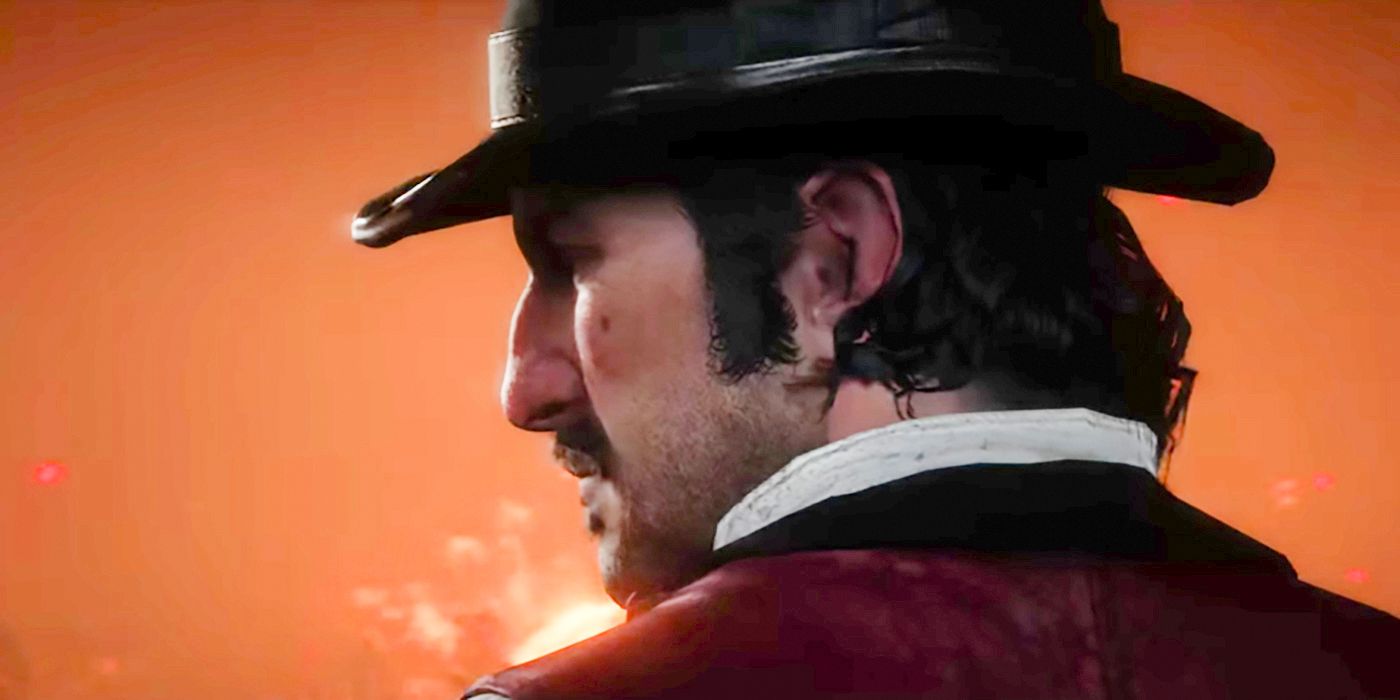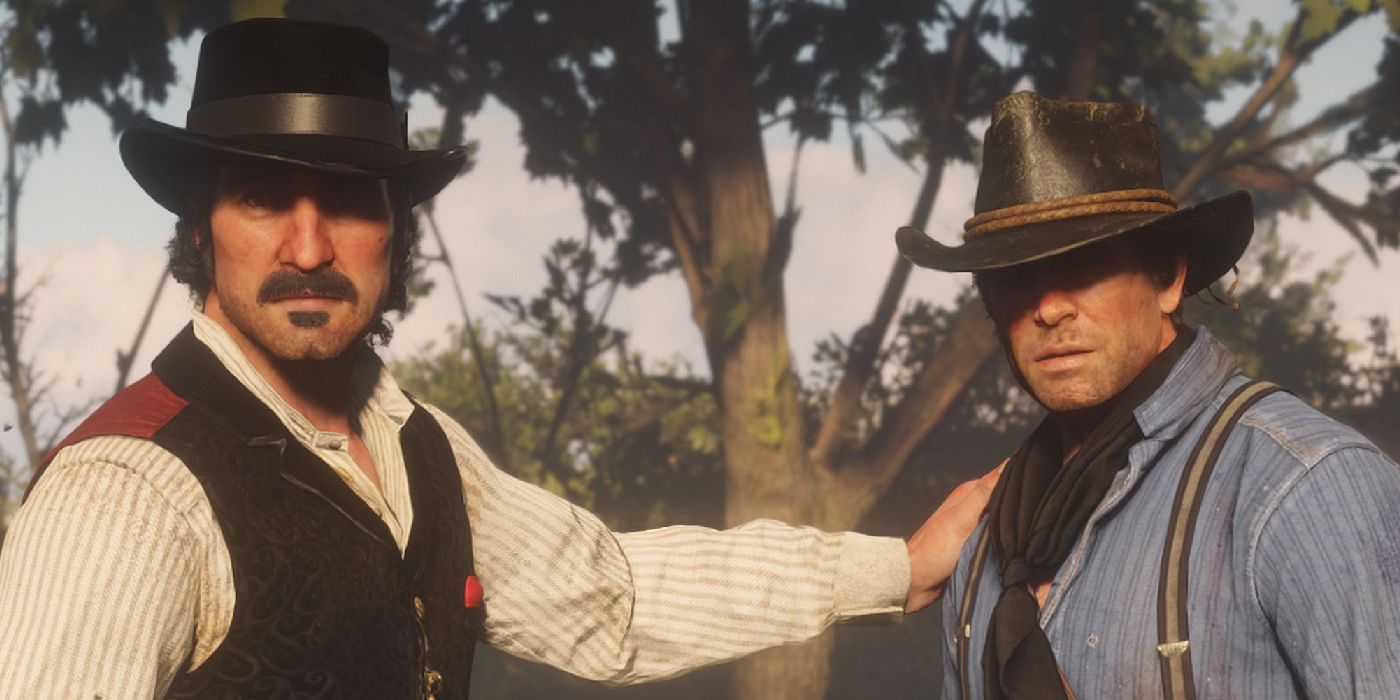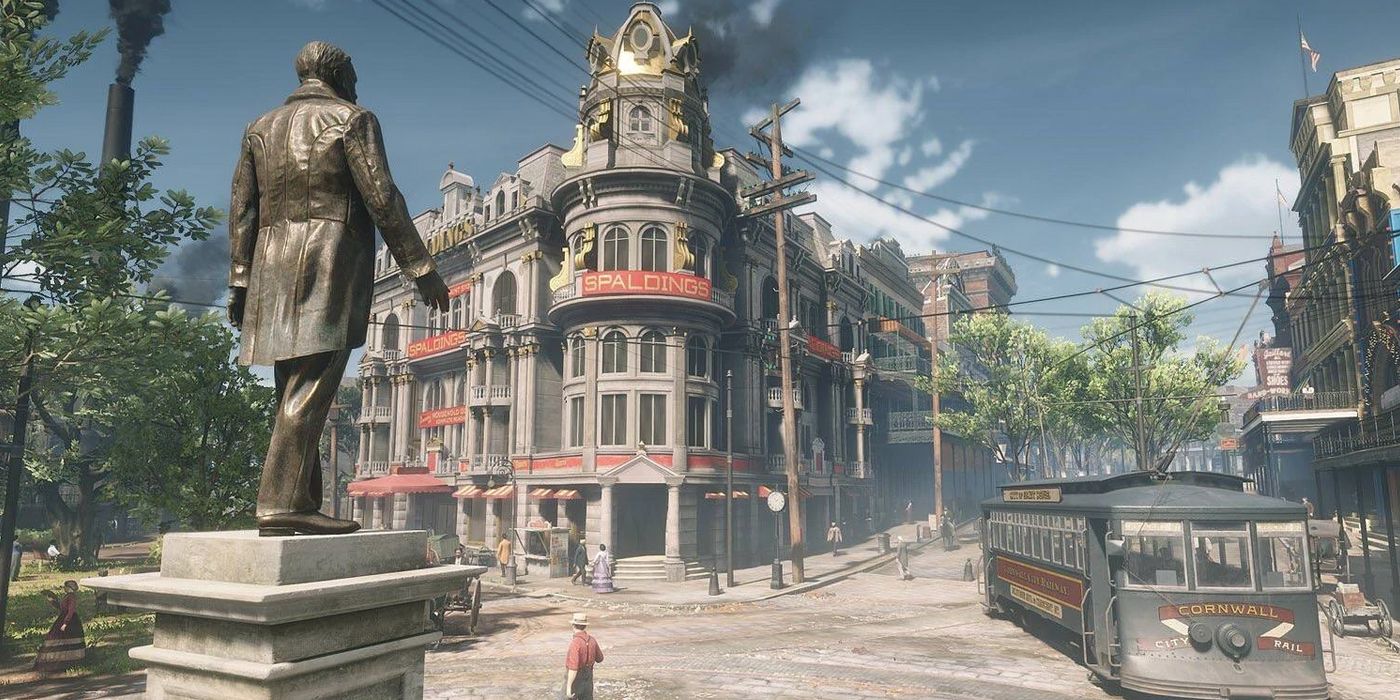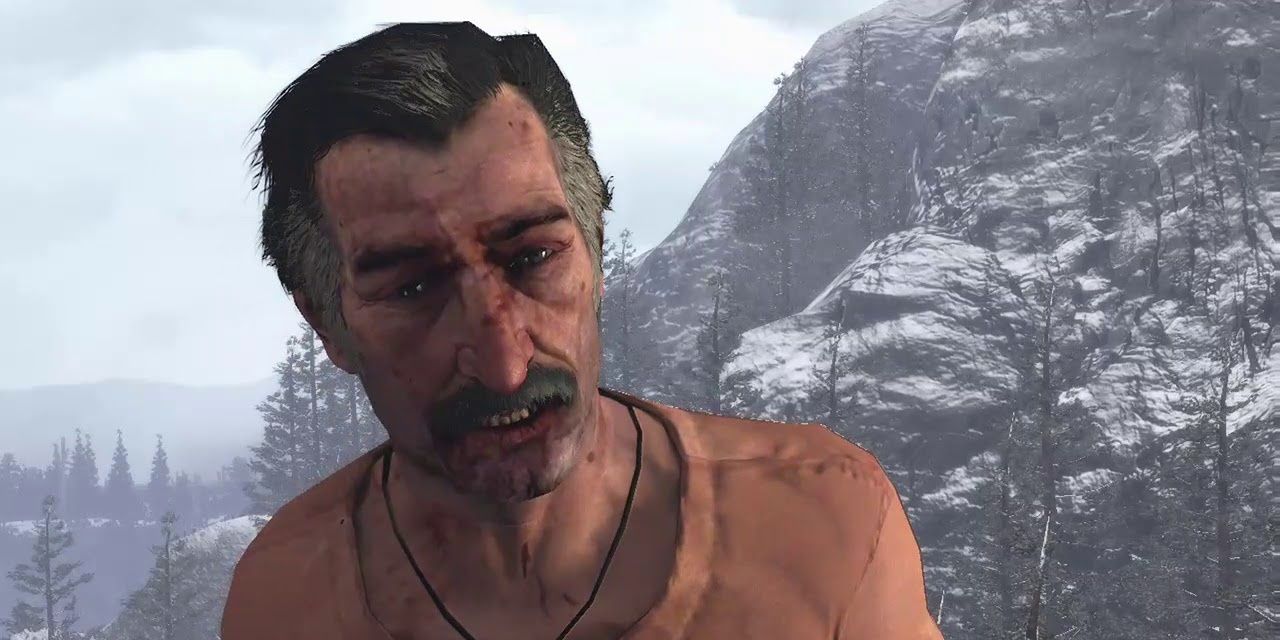Stubbornness and arrogance are prevailing themes present throughout Red Dead Redemption 2's storyline. Micah's stubbornness often stemmed from his argumentative nature, and his decisions reflected a man of extremes. In a lot of ways, Micah fed into Dutch's ego, fueling his ill-conceived and reckless schemes to make more money. Granted many of the gang members also fed into it, but it wasn't their fault. Dutch was the worst offender and basically became Arthur's foil, which lead to every conflict, mistake, and tragedy that befell Dutch's gang.
Even as characters like Sadie and John began to understand the errors in Dutch's way, the man himself was uncompromising in his ideals and his methodology. Arthur begins to challenge his leadership in many ways because of their consistent missteps at the fault of Dutch's greed. This greed leads to the dismantling of the gang altogether in Red Dead Redemption 2, as many members of the gang are killed or left behind. Dutch preaches his intelligence as the leader of the gang, unwavering in his headstrong nature that brought so much pain and betrayal to the ones he loved. In short, Dutch is a man stuck in time, never realizing the grand lie that he has told himself.
Dutch's "Plan"
Over and over again, Dutch raves on about his grand "plan" to get the gang out of trouble and bring them to blissful peace. At first, players see this as some kind of noble goal, in spite of the crimes that service it. Players have no reason to doubt Dutch at first, at least without the context of Red Dead Redemption's story. Arthur and Dutch still retain a strong bond at the beginning of the game, but as the game progresses and Arthur came to terms with his and the gang's mortality, he questions Dutch's decision-making. He begins to see through the fallacy of a plan and understands Dutch's stubborn and unrealistic resolve.
He's not the only one either. More and more members of Dutch's gang, some of Arthur's closest friends, begin to realize that Dutch's leadership continues to lead them into trouble. That's not to say he doesn't have the greatest of intentions at heart, but his actions are, unbeknownst to him, leading to the death of his gang altogether. Sadie, Charles, John, and others begin to realize that the ideals that helped define the gang's early philosophy had clearly dissipated over time. Where the gang was initially formed to secure their peace and rob those who had profited off greed, Red Dead Redemption 2 emphasizes Dutch's descent into violent paranoia and recklessness.
A Dying Wild West
Consistently Dutch claims he cannot fight change, but he never truly embraces that fact. His actions speak to a desire to continue living the outlaw life, a dangerous cycle that he subconsciously chooses not to leave behind. With each moving off the camp, each brushing with the Pinkertons or local law enforcement, Dutch only becomes emboldened in his search for another heist. For the entirety of Red Dead Redemption and Red Dead Redemption 2, the plot hammers the point home that the Wild West is a dying breed. Dutch preaches this notion vocally, in both games, that he cannot stop the influence of society on the west and his old lifestyle.
Numerous times throughout Red Dead Redemption 2 is the gang continuously beaten down by one failure after another. Every time Dutch exclaims that he "has a plan" for what's next, but it's never in service to their end goal. There's always a new heist and a new haul, and presumably Dutch can't help himself. Even during early discussions when the gang wanted to get the gold back from what had turned into the Blackwater Massacre, Dutch insisted on pressing on to the next heist and insists the gang will come back later. This insistence on chasing a new score is a reflection of Dutch's true desire, not one of making enough money to retire, but his neglecting of the inevitable fate of the Wild West.
Dutch: Incapable of Change
The irony in this is Arthur and the gang around him begin to notice Dutch's spirit breaking in the face of betrayal and despair. Much of the gang even abandons Dutch prior to the revelation of Micah's betrayal, but it in the end, it doesn't change him. Dutch's unyielding ego and stubbornness, even as the world around him crumbles and his closest family leaves him, is spurred on with Micah in tow. Change is something Dutch ultimately wishes to avoid, regardless of how often he states it's impossible to fight. Every time it seems like he's willing to turn a new life, Dutch flips a switch and reverts back to his default state.
It took Arthur and Micah's individual deaths for him to even consider changing his ways, but as players find out in Red Dead Redemption, Dutch is still up to his old ways. Dutch continuously proves he's incapable of change even when the worst-case consequences are presented to him, to which he responds by disconnecting himself from the moment entirely. He leaves when Arthur dies, he's speechless when he murders Micah, and even during Dutch's own death, he's ambivalent. Dutch cannot recognize that his old-fashioned idea of the Wild West has only caused him more misery in his life, causing him to be a man stuck in time. This is all despite Dutch being presented direct evidence of the consequences of his folly multiple times, recognizing he needs to change, and yet proving he's incapable of putting his pride aside.
Red Dead Redemption 2 is out now for PC, PS4, Stadia, and Xbox One.

